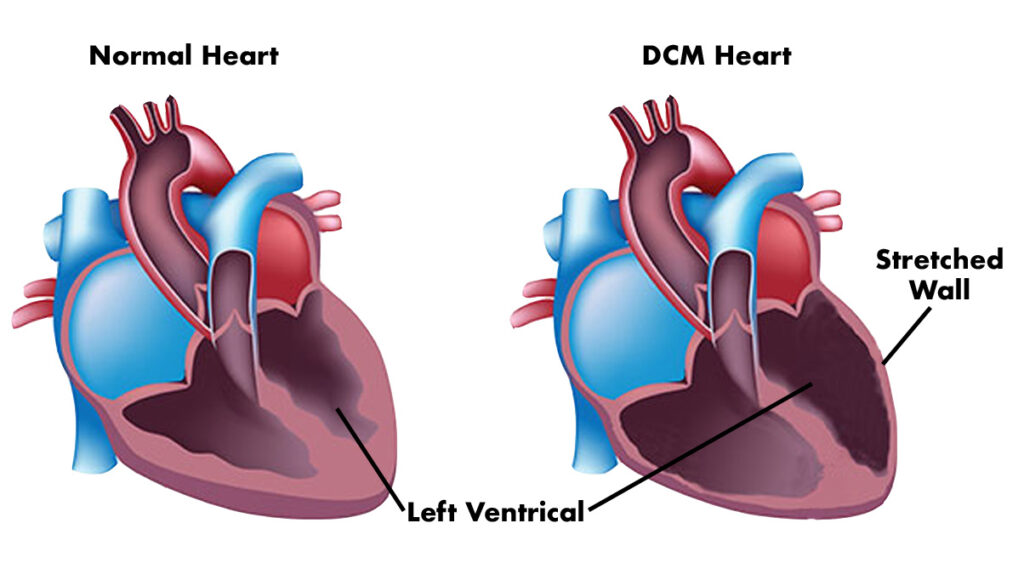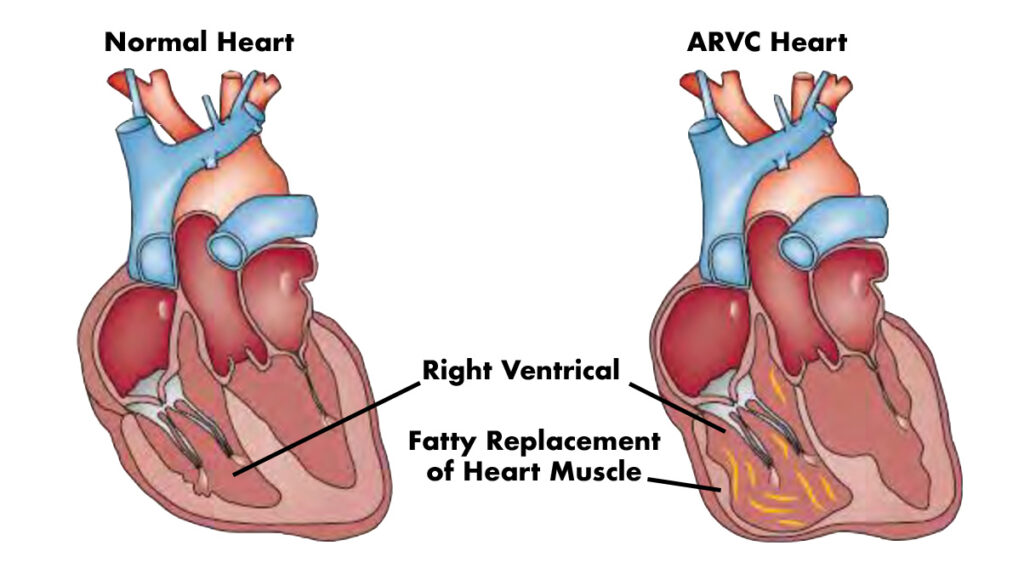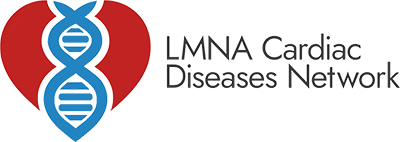Prognosis
LMNA cardiac diseases, such as Dilated Cardiomyopathy (DCM) and arrhythmogenic disorders, typically manifest progressively. The course of these diseases can be unpredictable, with some patients experiencing rapid deterioration, while others may have a stable condition for years. Early onset of symptoms, particularly before the age of 30, often indicates a more severe progression. Patients may eventually develop heart failure symptoms, necessitating more aggressive treatments or interventions. Regular assessments are crucial for early detection and management of complications.
For more information about heart failure and DCM, visit https://dcmfoundation.org.
Dilated Cardiomyopathy (DCM)
Dilated Cardiomyopathy in LMNA patients is a condition where the heart's left ventricle becomes enlarged and weakened, impairing its ability to pump blood efficiently. This leads to a decrease in cardiac output and can progress to heart failure. Symptoms often include shortness of breath, fatigue, and swelling in the legs and ankles due to fluid build-up. As the disease advances, it can lead to arrhythmias and an increased risk of sudden cardiac death. Early detection and management, including lifestyle changes, medications, and in some cases, the use of devices like pacemakers, are critical in managing this condition.

Arrhythmogenic Right Ventricular Cardiomyopathy (ARVC)
ARVC is a form of cardiomyopathy associated with LMNA mutations where the muscle tissue in the right ventricle of the heart is replaced with fatty and fibrous tissue. This replacement disrupts the heart's electrical system, leading to arrhythmias. Symptoms can include palpitations, dizziness, fainting, and in severe cases, cardiac arrest. ARVC is particularly risky as it can lead to life-threatening heart rhythms, especially in young athletes. Diagnosis often involves imaging studies like echocardiograms and MRIs, along with genetic testing. Treatment focuses on managing arrhythmias and may include medications, lifestyle modifications, and in some cases, implantable devices to control heart rhythms.

Conduction Disorder
Conduction disorders in LMNA patients involve abnormalities in the electrical conduction pathways of the heart, leading to irregular heartbeats and arrhythmias. The most common types seen in LMNA mutation carriers include atrioventricular (AV) block and bundle branch block. Patients may experience symptoms such as fatigue, dizziness, fainting spells, or in severe cases, heart failure. These disorders can be detected through electrocardiograms (ECGs) and continuous heart rhythm monitoring. Treatment depends on the severity and can range from observation to the implantation of a pacemaker or defibrillator to maintain regular heart rhythm and prevent sudden cardiac events.
Subscribe To Our Newsletter
Show Your Support
Every contribution, regardless of its amount, fuels crucial efforts in research, medical education, patient advocacy, and raising awareness about LMNA cardiac diseases.
You can make a difference in various ways: by committing as a regular monthly donor, offering a single donation, organizing fundraising events both online and in person, contributing to our special tribute funds, or through your unique fundraising initiatives!
DonateDonateYou can make a difference in various ways: by committing as a regular monthly donor, offering a single donation, organizing fundraising events both online and in person, contributing to our special tribute funds, or through your unique fundraising initiatives!
